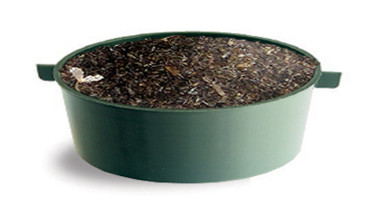20th Apr 2018
Eliminating Chemical Mosquito Sprays
Know your insecticides and repellents
Chemical insecticides and repellents are one commonly used method of control, but they’re not necessarily the best choice for everyone. Depending on the active ingredient and the method of use, they can cause health problems for people and pets, and can damage populations of beneficial insects such as bees.
Whether you use an insecticide to kill mosquitoes on your property or apply a repellent to prevent bites, you’re exposing you and your family to potentially damaging chemicals.
It’s worth understanding the possible problems caused by chemical sprays, so you can minimize their impact and look for safer options.
Repellent risks
Repellents, particularly those that contain DEET, have been associated with irritation to the skin and eyes, nausea and dizziness, and triggering symptoms of asthma. The effects can be especially harmful for pregnant women, young children, and people with weakened immunity.
Experts advise trying natural alternatives first, and only using chemical repellents if the natural choices don’t work for you. If you do need to use a DEET-based spray, follow these tips to limit exposure:
- Apply sparingly.
- Avoid spraying around eyes, mouth, or on hands.
- Don’t allow young children to apply themselves.
- Wash hands with soap and water after use.
Spray safety
Sprays used in and around the home can cause similar problems to repellents. The risks are higher when sprays are used indoors, as chemicals can accumulate on surfaces over time. Outside, they’re usually dispersed by rain and wind before they have the chance to build up but you then need to have regular spraying to manage mosquito populations.
While the chemicals used in bug sprays can affect anyone, they’re most dangerous to small children and pets, who are more likely to put household items in their mouths, and touch surfaces around the home.
If you do need to spray your home for mosquitoes or other insects, these pointers can help you limit the risk of health problems:
- If possible, apply the spray and then leave the house for at least a few hours to avoid breathing in fumes.
- Wash your hands immediately after use.
- When you return to the house, open doors and windows to allow fumes to disperse.
- Wipe down surfaces where spray is likely to settle – such as kitchen counters, tables, and bathroom vanities.
Insect impacts
Spraying outdoors is less likely to harm people or pets, but it can have negative side effects. Insecticide sprays don’t just eliminate pests such as mosquitoes; they can also kill beneficial insects such as bees, spiders, and butterflies. Unfortunately, there is no way to prevent this – other than looking for non-spray alternatives for mosquito control.
The best option is a Mega Catch Trap. Our patented technology effectively attracts, traps, and kills mosquitoes and other biting insects, without using toxic chemicals. Better still, they help disrupt the breeding cycle of mosquitoes on and around your property, reducing the overall population long-term.
We have a range of traps, giving you effective, long-lasting control with minimal maintenance – and without exposing your family to harmful chemicals. If your mosquito problem is particularly intense, you can upgrade to our patented slow release CO2 system which uses harmless CO2 gas to attract and kill even higher numbers of mosquitoes.

